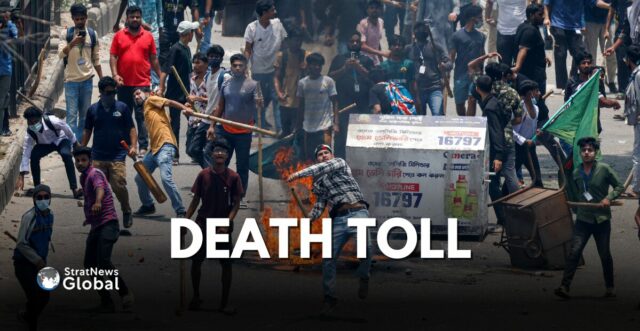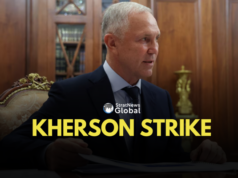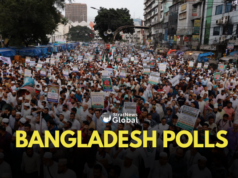Violent clashes erupted in Dhaka on Thursday as thousands of students armed with sticks and rocks faced off against armed police. The protests, driven by high youth unemployment, have led to the deaths of at least ten people this week and resulted in the shutdown of some mobile internet services.
Unrest Across the Nation
The protests mark the largest demonstration since Prime Minister Sheikh Hasina’s re-election for a fourth term. The youth-led movement is demanding the abolition of a policy that reserves 30% of government jobs for the families of those who fought in the 1971 war of independence from Pakistan. With nearly 20% of Bangladesh’s 170 million population unemployed or out of education, frustration among the youth is high.
Fatal Clashes and Injuries
In Dhaka, four people were killed in clashes with police on Thursday, according to the Daily Star newspaper, citing hospital superintendent Mizanur Rahman. Hundreds more have been injured in the nationwide unrest. Law Minister Anisul Huq stated that the government is open to dialogue with the protesters. “We are willing to sit (and talk with them). Whenever they want to sit in the discussion, it will happen,” Huq said.
Government Response
Authorities responded to the protests by firing tear gas near a Dhaka university campus and cutting some mobile internet services to limit the demonstrations. Similar scenes unfolded in Chittagong, where police used tear gas to disperse stone-throwing students blocking a major highway. The U.S. and Indian embassies in Dhaka issued advisories to their citizens to avoid demonstrations, with the U.S. embassy closing on Thursday.
Calls for Patience and Judicial Intervention
Prime Minister Hasina, daughter of Bangladesh’s independence leader Sheikh Mujibur Rahman, has so far refused to meet the protesters’ demands. She has urged students to wait for the Supreme Court’s decision on August 7, which will hear the government’s appeal against a High Court verdict that reinstated the quota system. Hasina has asked the students to be patient until the court’s verdict.
International Reactions
Rights groups, including Amnesty International, and international entities such as the United Nations and the United States, have called on the Bangladeshi government to ensure the protection of peaceful protesters. The government has also indefinitely closed all public and private universities and deployed riot police and the Border Guard paramilitary force to maintain order on university campuses.
Watch more : https://www.youtube.com/watch?v=Q8H14Jt6K9g
With Inputs from Reuters
Research Associate at StratNewsGlobal, A keen observer of #China and Foreign Affairs. Writer, Weibo Trends, Analyst.
Twitter: @resham_sng





